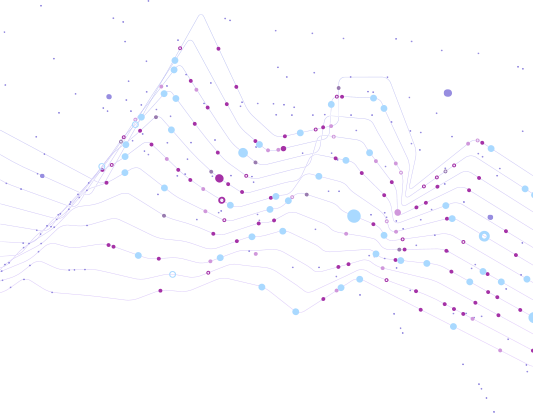


Role of Mobile Apps in Supporting Toronto’s Sustainable Smart City Initiatives
With sustainability at the center of this transformation, Toronto leaps forth to become one of the fastest-evolving smart cities. The city promotes a greener and more efficient urban future through innovations in digital technologies, the most relevant of which are mobile applications. These mobile application tools will greatly help in the promotion of the smart city initiatives of Toronto through better urban mobility, energy optimization, civil engagement, and reduced environmental footprint of the city.
Driving Smart Urban Mobility
Transportation is one of the major challenges most big cities grapple with. Well, lately, apps in Toronto are contributing to easing such challenges as they make mobile traveling schemes smarter and more innovative. These include: Transit, Rocketman, and TTCconnect, which allow users to plan their trips in real-time, while also getting live updates on buses and subways to make better decisions about using public transport than personal vehicles. Less dependency on cars means reduced carbon emissions and reduced traffic congestion.
On top of this, there are also ride-sharing and micro-mobility applications like Uber, Lyft, Bird, or Lime that now prove to be alternatives toward the way of development of sustainability within the city. An electric scooter or bike can substitute an option available to individuals for short commutes, and thus produce low-emission travel, while lightening the public transit system.
Enabling Efficient Energy Management

The sustainable energy codes are yet another integral factor to Toronto's sustainability endowments. Such mobile applications are for the users in smart homes and buildings but allow the tenants and employers to monitor and control the consumption of energy. The applications can be synchronized with Nest, Ecobee (a Toronto-based start-up), Hydro One, and many more. The energy they store gives real-time insights into the rate of electricity consumption and can help the user optimally control by adjusting heating, cooling, and lighting levels.
Such technologies in a sustainable city's excellence will bring overall energy demand down and contribute to the net-zero emissions by empowering residents with apps that can promote responsible energy behavior, leading to a more sustainable urban way of life.
Enhancing Waste Management and Recycling
However, Toronto's waste management strategy is also making strides with mobile applications. Toronto Waste App informs users of the proper disposal of discarded items, sends them reminders for collection, and helps them locate drop-off depots. In doing so, it considerably ups the recycling rate and minimizes waste to the landfills.
These local apps facilitate the reselling or donating of unwanted items so that they do not get dumped into the waste stream. Apps such as Bunz are very much in favor of a circular economy that is sharing, reusing, or recycling rather than throwing away.
Promoting Citizen Engagement and Urban Planning
Seniors in an individual smart city will, indeed, form an integral part of that city, for it drives Toronto's investments so much in making the tools available for civic participation. For example, on the mobile applications like TOwaste, Toronto311, and Neighbourhood Watch Toronto, residents can communicate civic matters like potholes, graffiti, or non-emergency incidents directly to city officials through their devices. A real-time dialogue opens different avenues for improved service delivery while holding the city to account and making it more responsive to residents' needs.
Furthermore, public consultations and participatory budgeting apps allow citizens to take part in the allocation of funds for various municipal resources, democratizing and making urban development inclusive. These tools create feedback loops for residents to provide input into how sustainable practices and development will occur in the city.
Supporting Green Lifestyles

From local food delivery platforms promoting sustainable agriculture to fitness and wellness apps motivating healthy lifestyles, through their influence, mobile applications render Torontonians greener each day. Flashfood, for example, reduces food wastage by allowing massive discounts on groceries close to expiration, while Too Good To-Go offers users access to surplus food from restaurants and cafes.
Green lifestyle apps also promote environmentally conscious consumption, guide eco-friendly shopping habits, and suggest sustainable alternatives to everyday products. Collectively, these apps shape user behavior in a way that supports the broader goals of Toronto’s smart city agenda.
Empowering Data-Driven Decision Making
These applications can gather information from users but will also be able to provide rich inputs into the processes of urban planning and policy intervention in Toronto. For example, while aggregated and anonymized data obtained from transit apps provide insights for planners on traffic patterns and improvements in infrastructure, energy usage statistics enable decisions to be made about utility upgrades and incentives to install solar panels:
The data input from real-time mobile applications allows the city to spend less on future altercations while making decisions that go with the goal of establishing a connected, sustainable, and effective 21st-century urban environment.
Good to seen here as they don't just serve users; they also collect tons of valuable data feeding into the naires of Toronto's urban planning and policy-making processes. For example, aggregated and anonymized data drawing from transit apps helps city planners better understand typical traffic patterns and improvise infrastructure. Energy use stats inform utility upgrade decisions or solar panel incentives.
Conclusion
Conveniently low-tech mobile applications are more and more bringing about the effects that they are said to be making way for new ways of managing sustainability in Toronto. But, they're more than just a tool for doing everyday things. Rather, they form part of the fabric of the digital ecosystem that makes Toronto a cleaner, smarter, and healthier city. Should technology continue to grow-the development of mobile applications will inevitably take an even greater role in bringing Toronto closer toward making it a smart city, empowering both citizens and city leaders to create a greener tomorrow.
